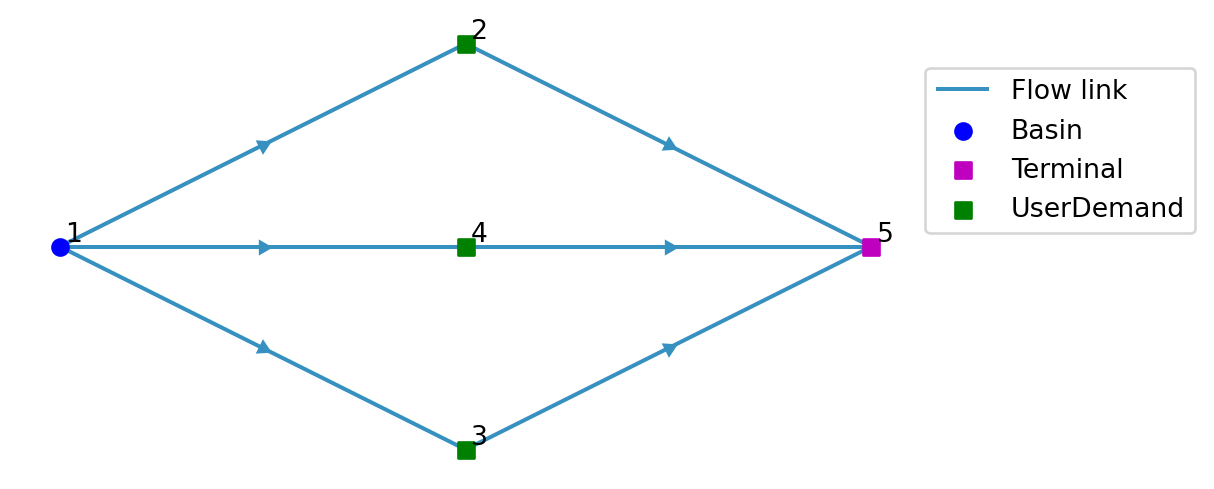Test models
Ribasim developers use the following models in their testbench and in order to test new features.
Code
import ribasim_testmodels
import matplotlib.pyplot as plt
from IPython.display import Markdown, display
for model_name, model_constructor in ribasim_testmodels.constructors.items():
if model_name.startswith("invalid"):
continue
display(Markdown(f"\n# {model_name}\n"))
if model_constructor.__doc__ is not None:
display(Markdown(model_constructor.__doc__))
model = model_constructor()
fig, ax = plt.subplots(figsize=(6, 4))
model.plot(ax)
ax.axis("off")
plt.show()
plt.close(fig)1 allocation_control
Create a model that has a pump controlled by allocation. 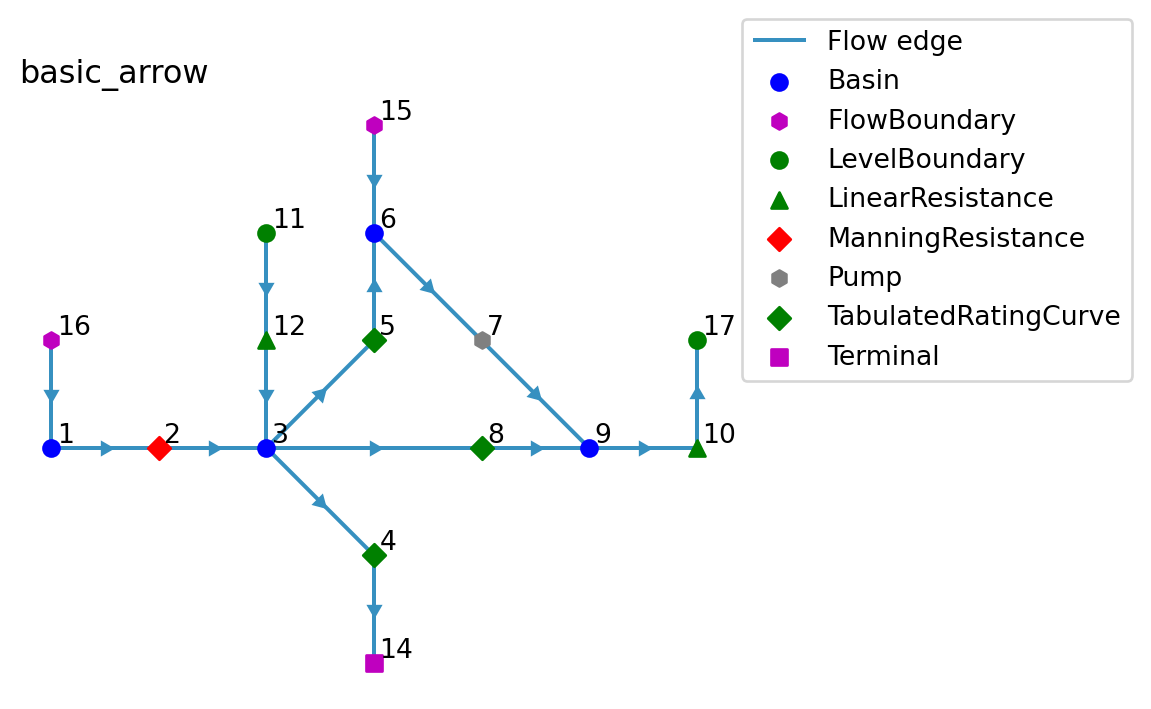
2 allocation_example
Generate a model that is used as an example of allocation in the docs. 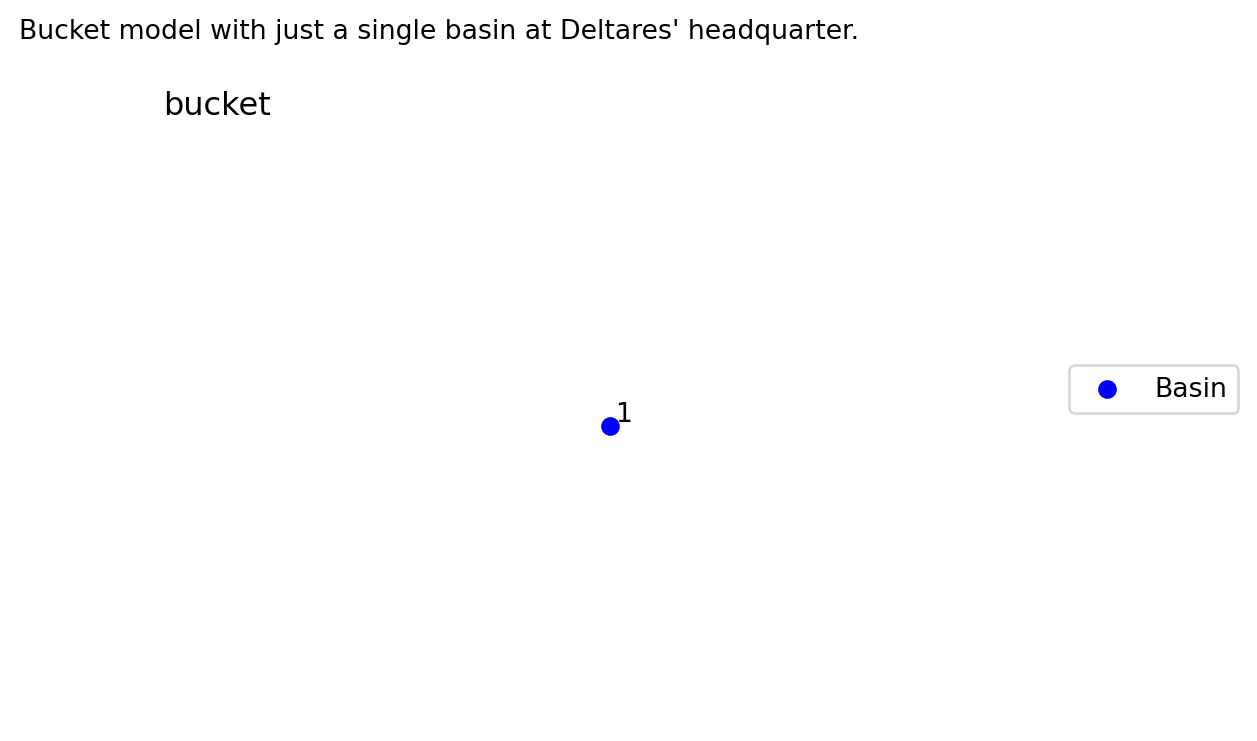
3 allocation_off_flow_demand
Set up a model with a Pump with a FlowDemand but allocation turned off. 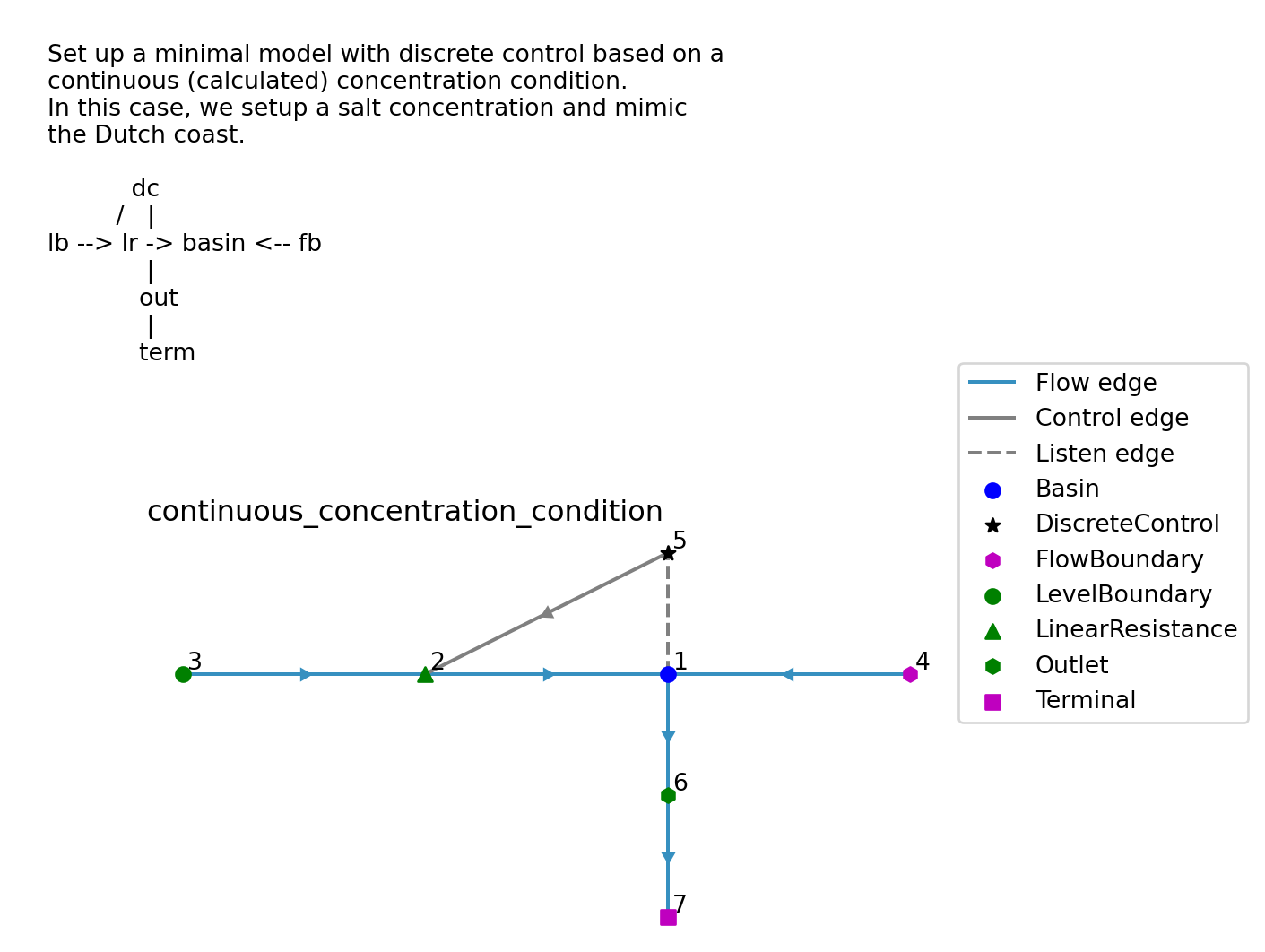
4 allocation_training
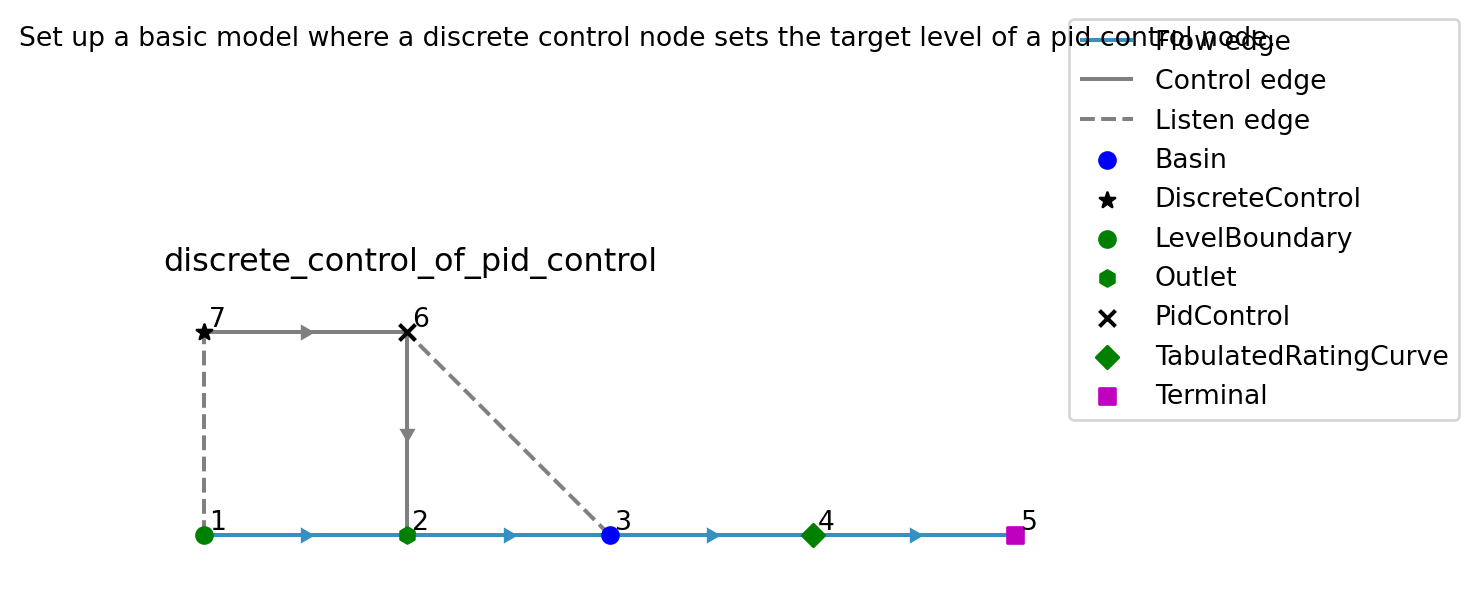
5 backwater
Backwater curve as an integration test for ManningResistance. 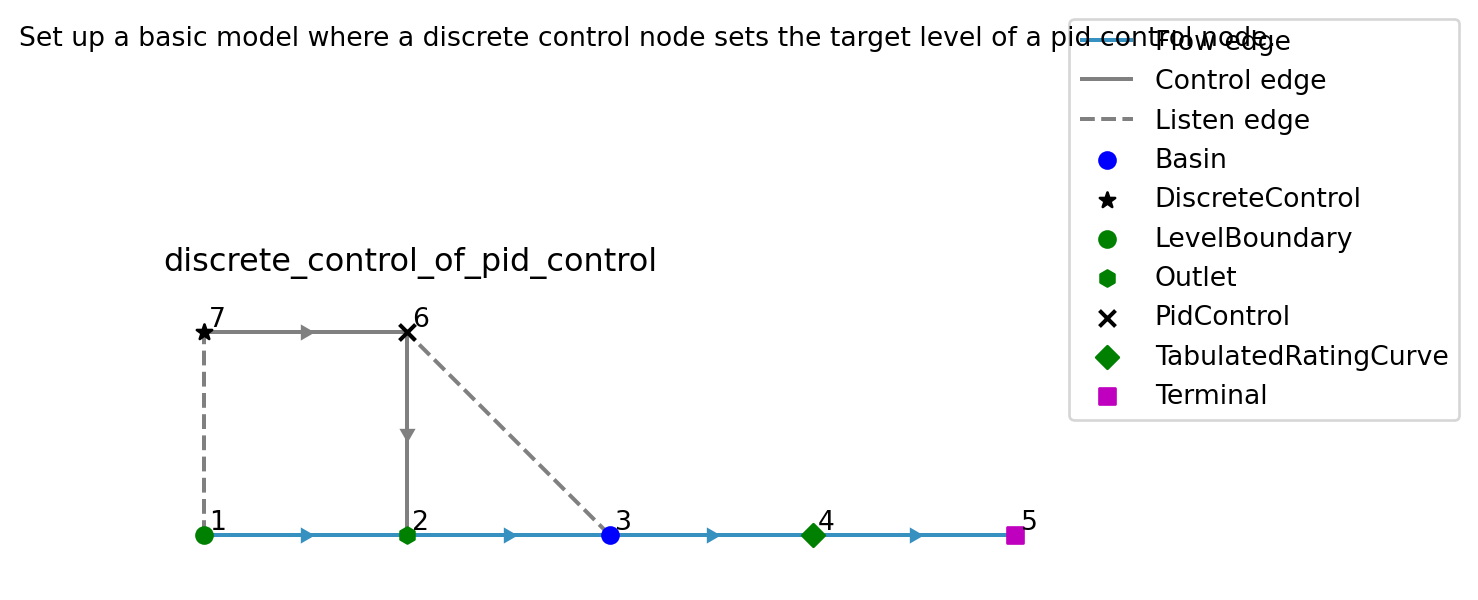
6 basic_arrow
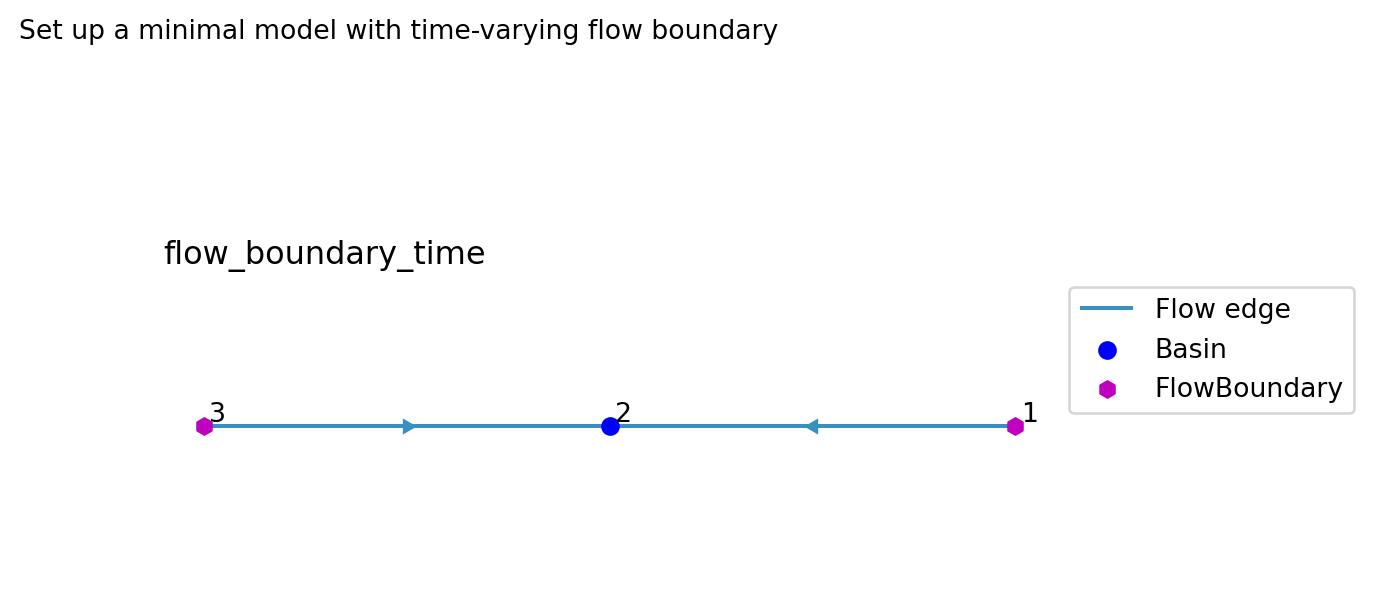
7 basic_basin_both_area_and_storage
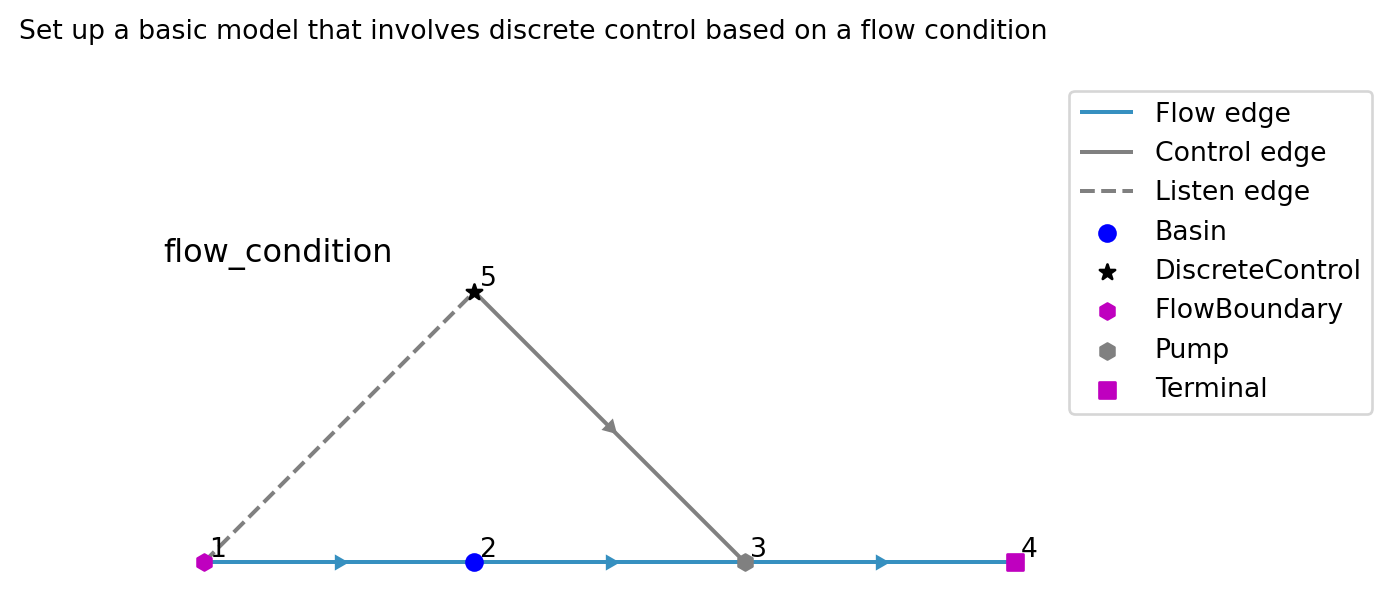
8 basic_basin_only_area
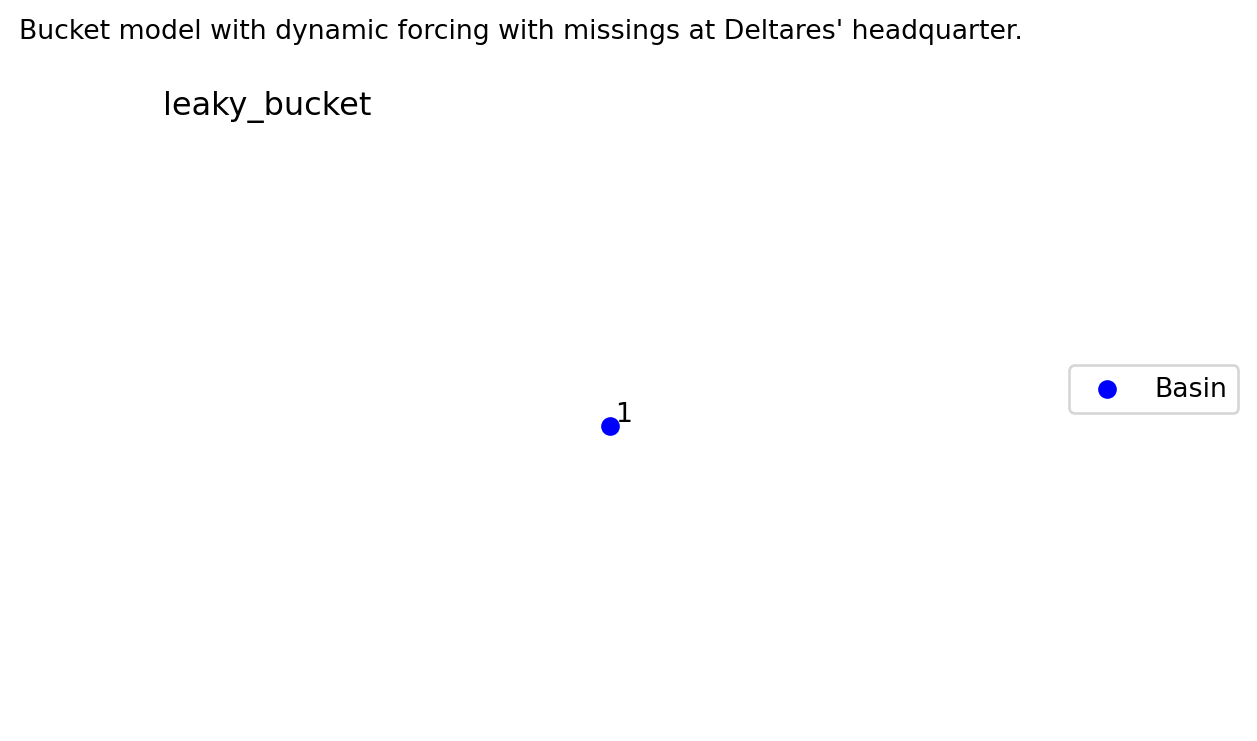
9 basic_basin_only_storage
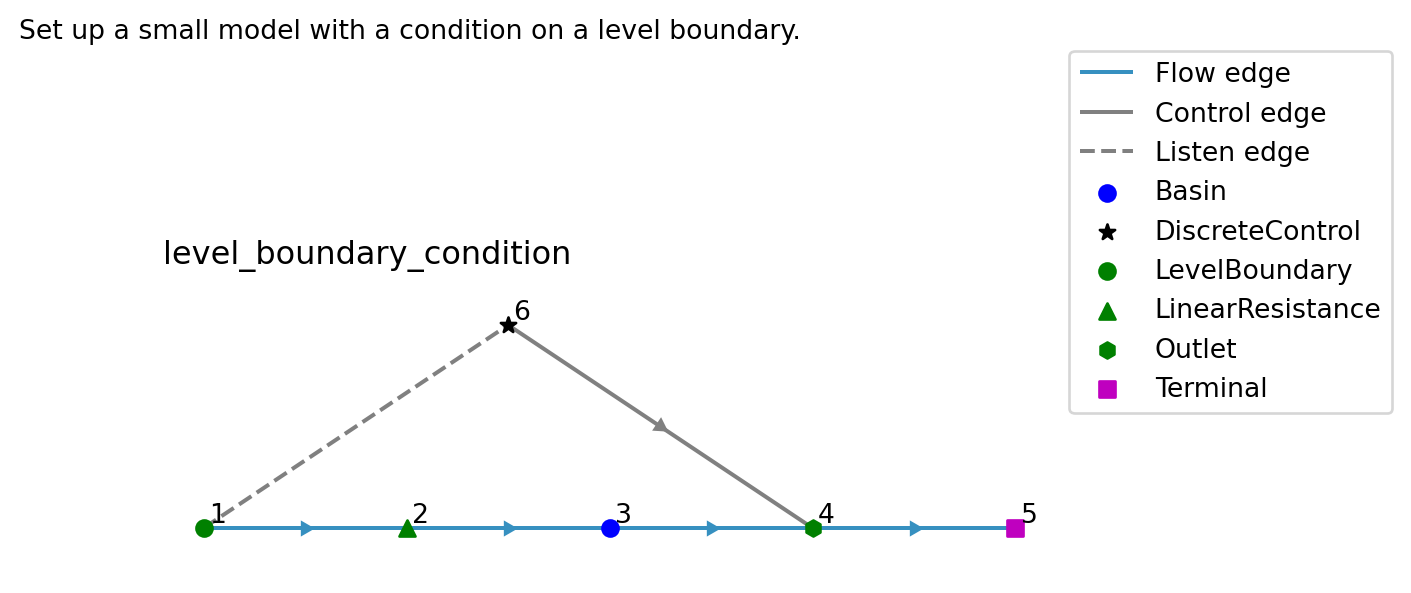
10 basic
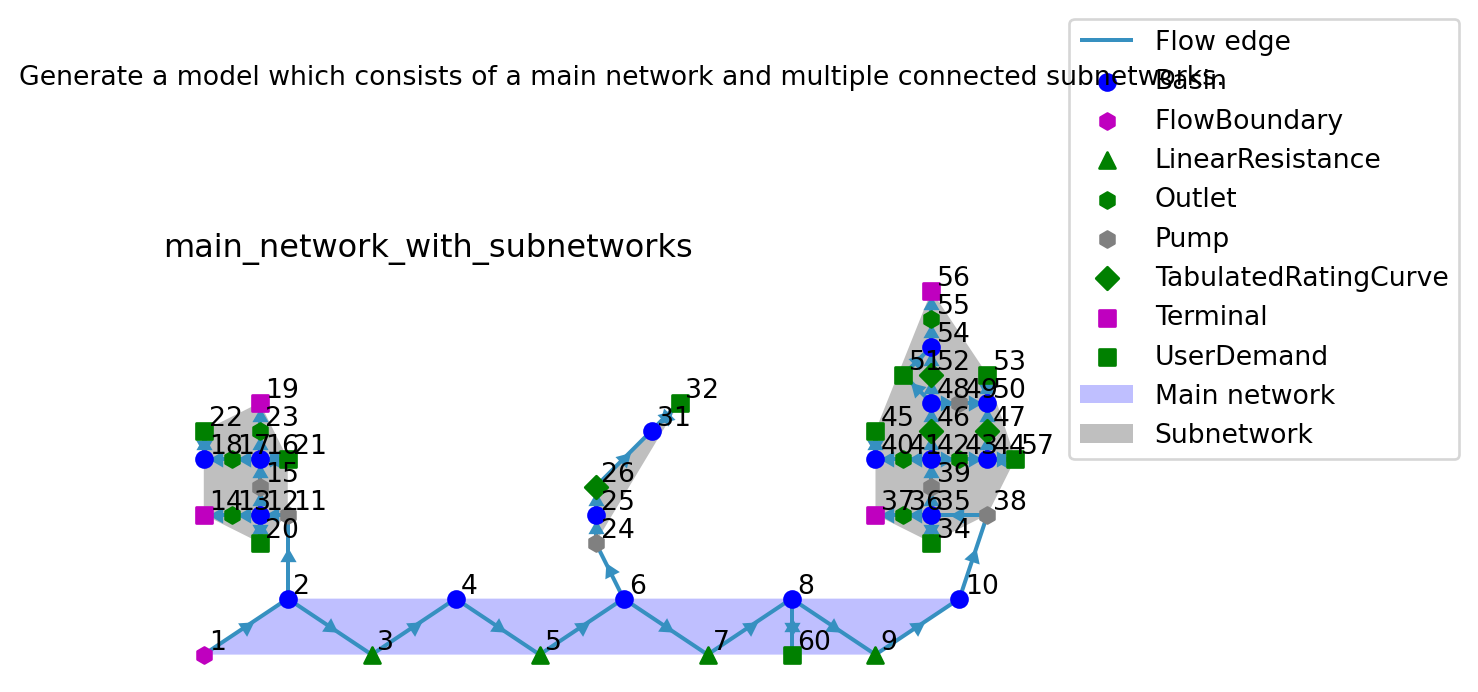
11 basic_transient
Update the basic model with transient forcing. 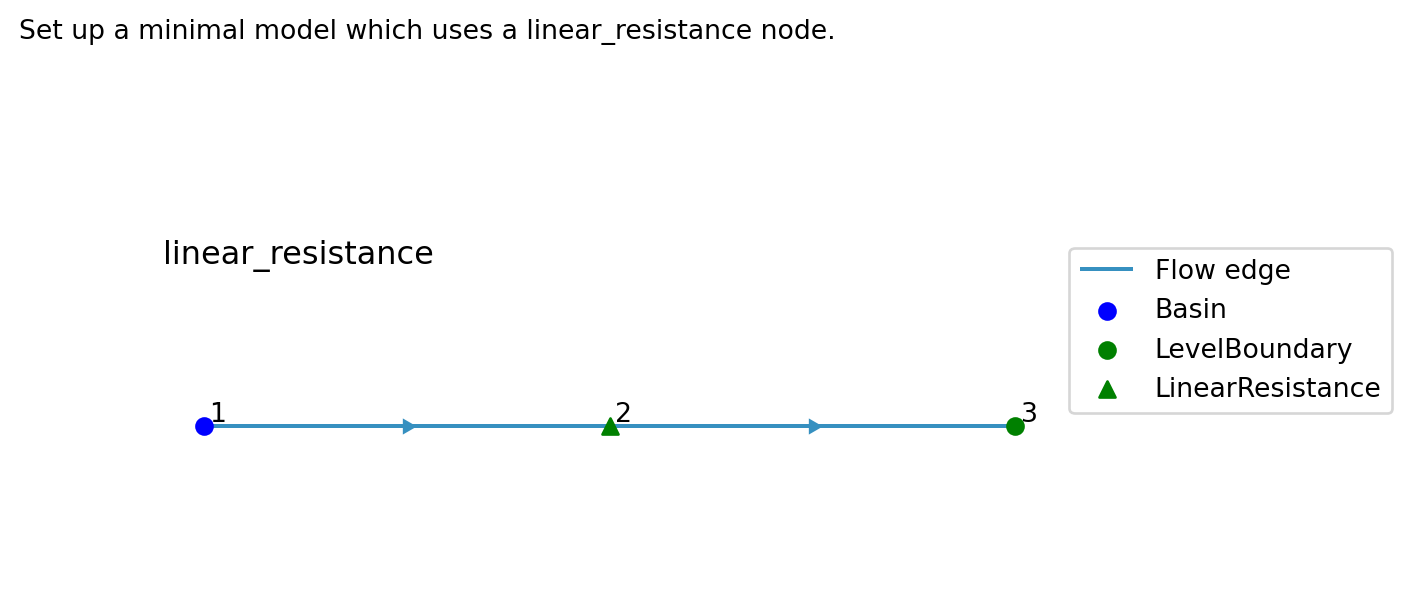
12 bucket
Bucket model with just a single basin at Deltares’ headquarter. 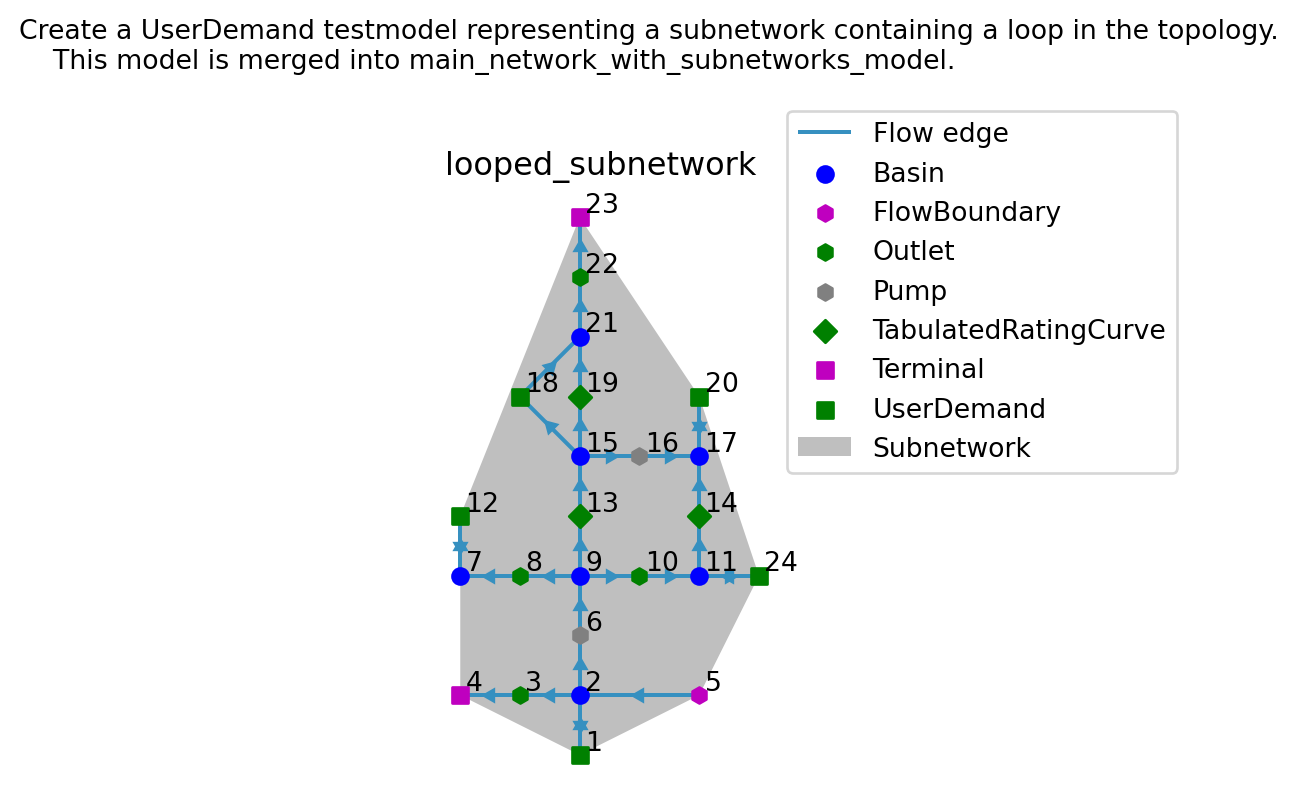
13 circular_flow
Create a model with a circular flow and a discrete control on a pump. 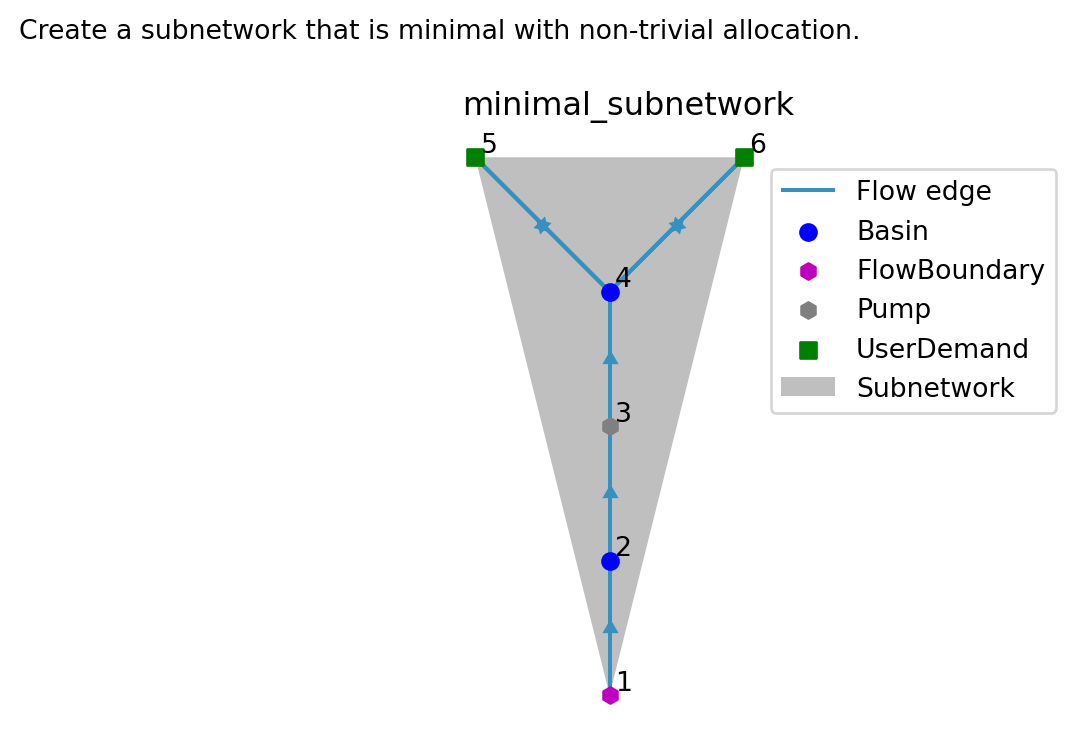
14 compound_variable_condition
Model with a condition on a compound variable for DiscreteControl. 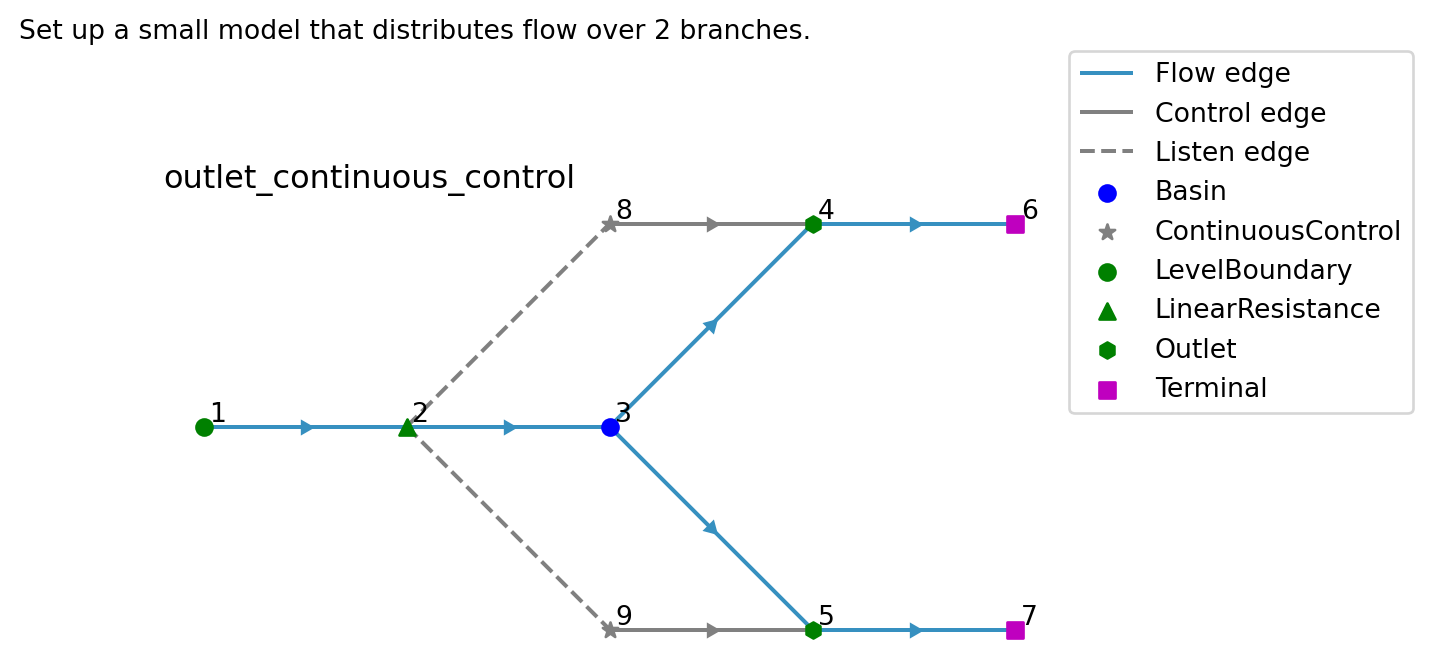
15 concentration_condition
DiscreteControl based on a concentration condition. 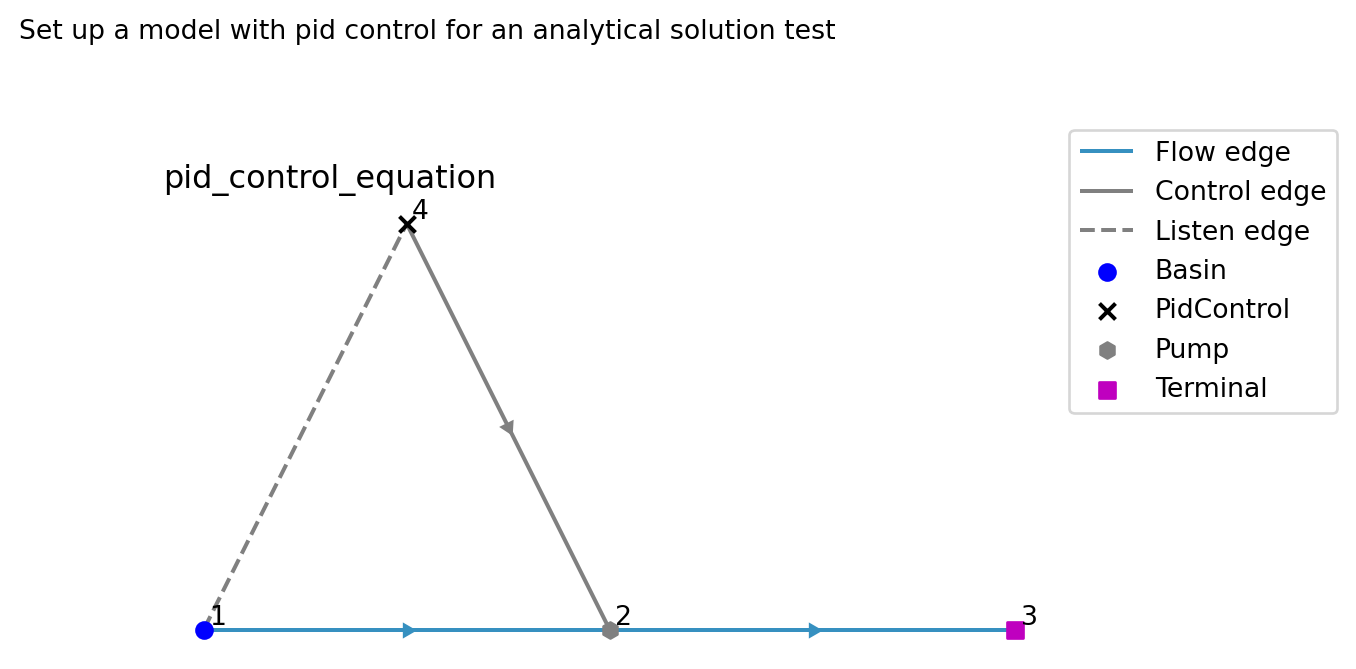
16 connector_node_flow_condition
DiscreteControl with a condition on the flow through a connector node. 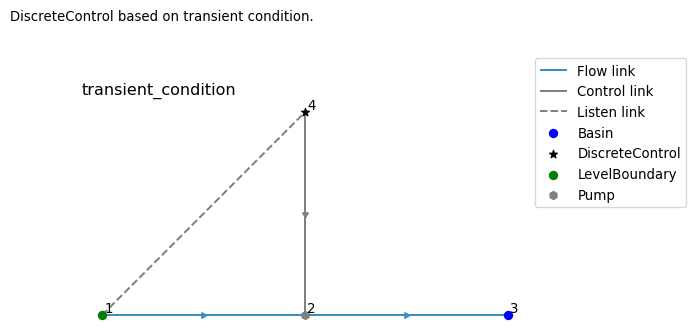
17 continuous_concentration_condition
DiscreteControl based on a continuous (calculated) concentration condition.
In this case, we setup a salt concentration and mimic the Dutch coast.
dc
/ |lb –> lr -> basin <– fb | out | term
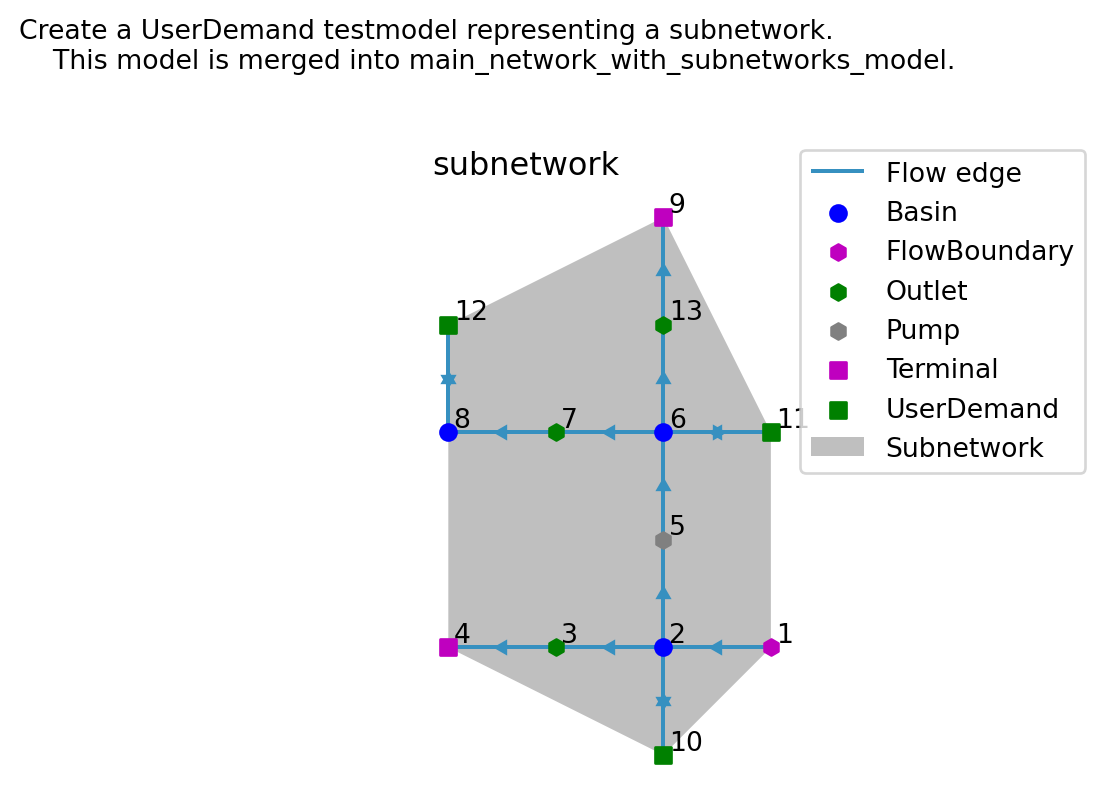
18 cyclic_demand
Create a model that has cyclic User- Flow- and LevelDemand. 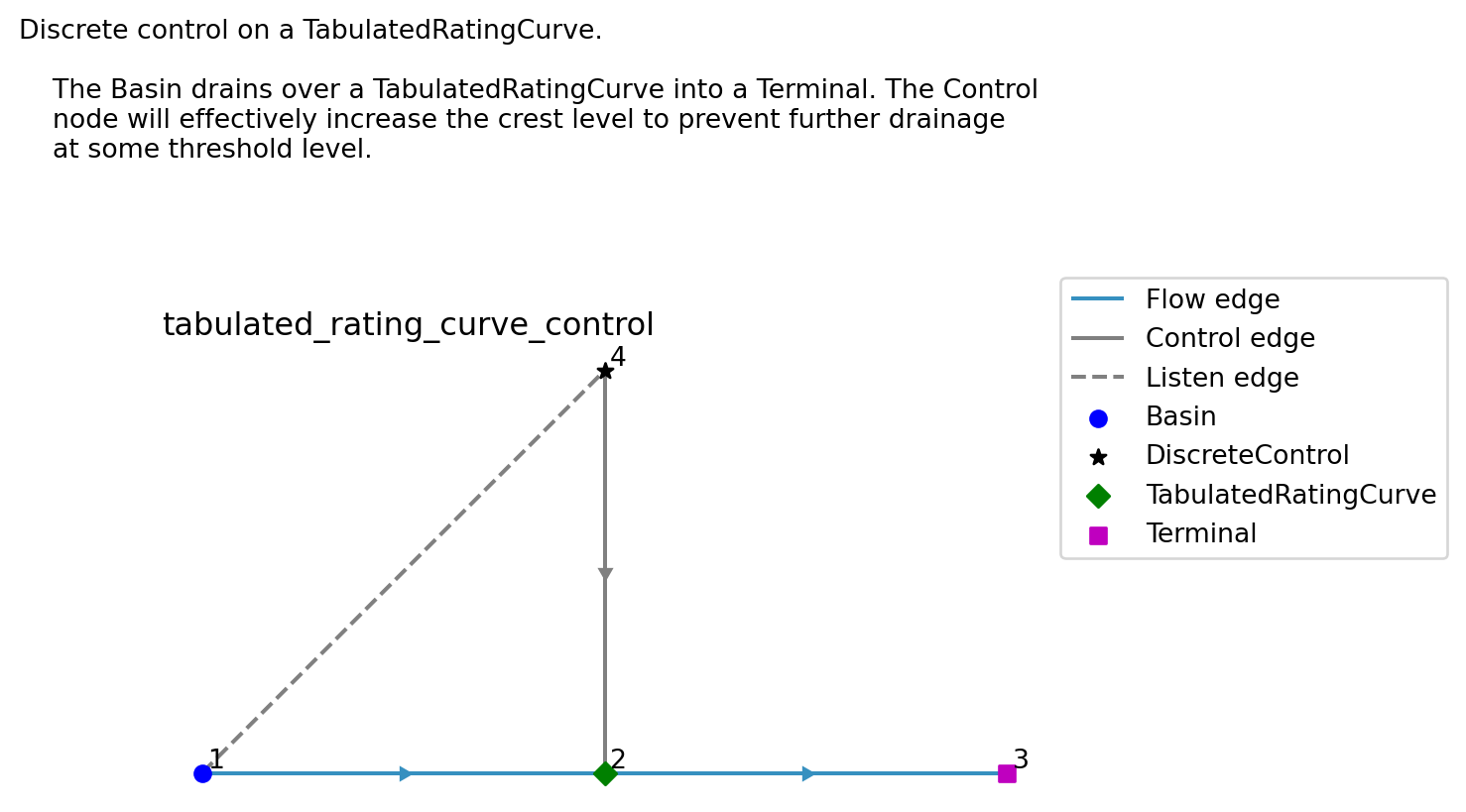
19 cyclic_time
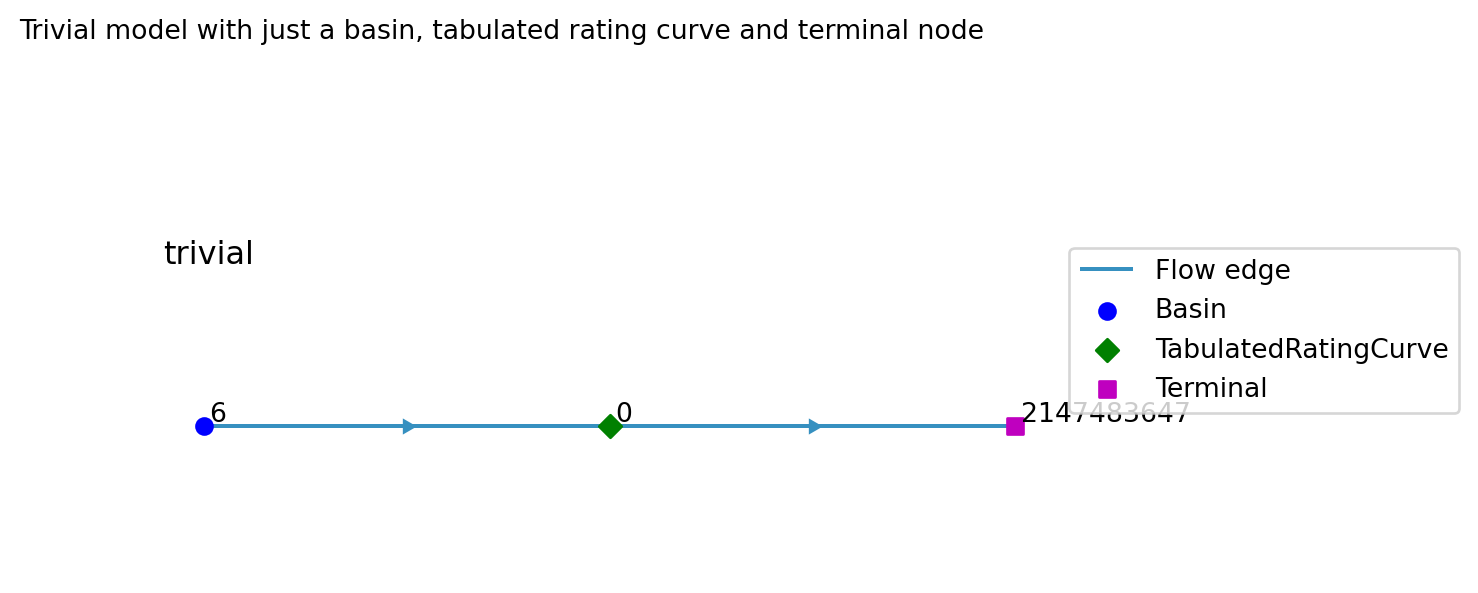
20 discrete_control_of_pid_control
Set up a basic model where a discrete control node sets the target level of a pid control node. 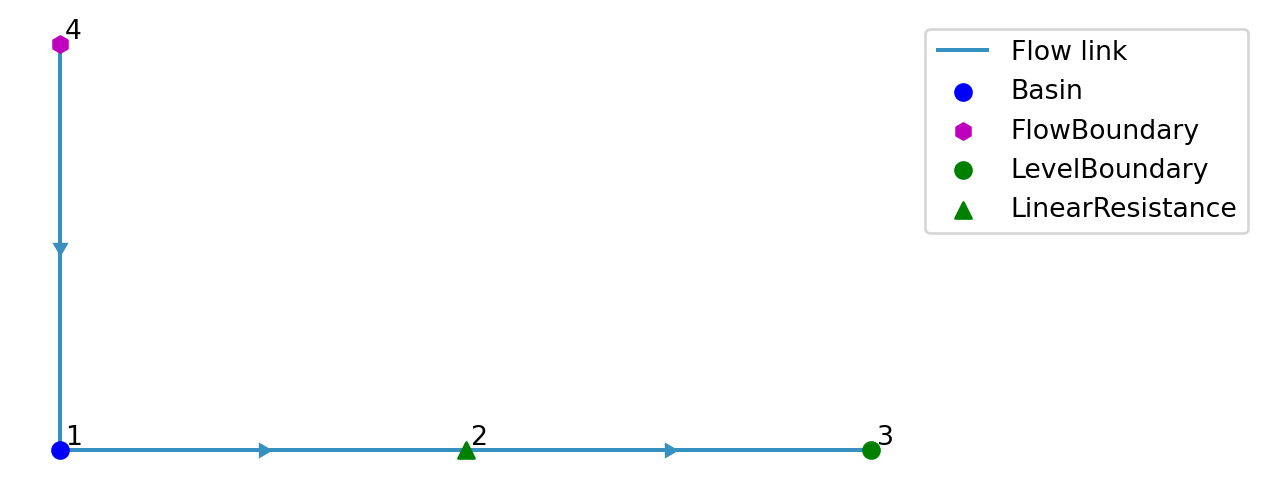
21 drain_surplus
Set up a model which activates an outlet to drain surplus water out of a Basin. 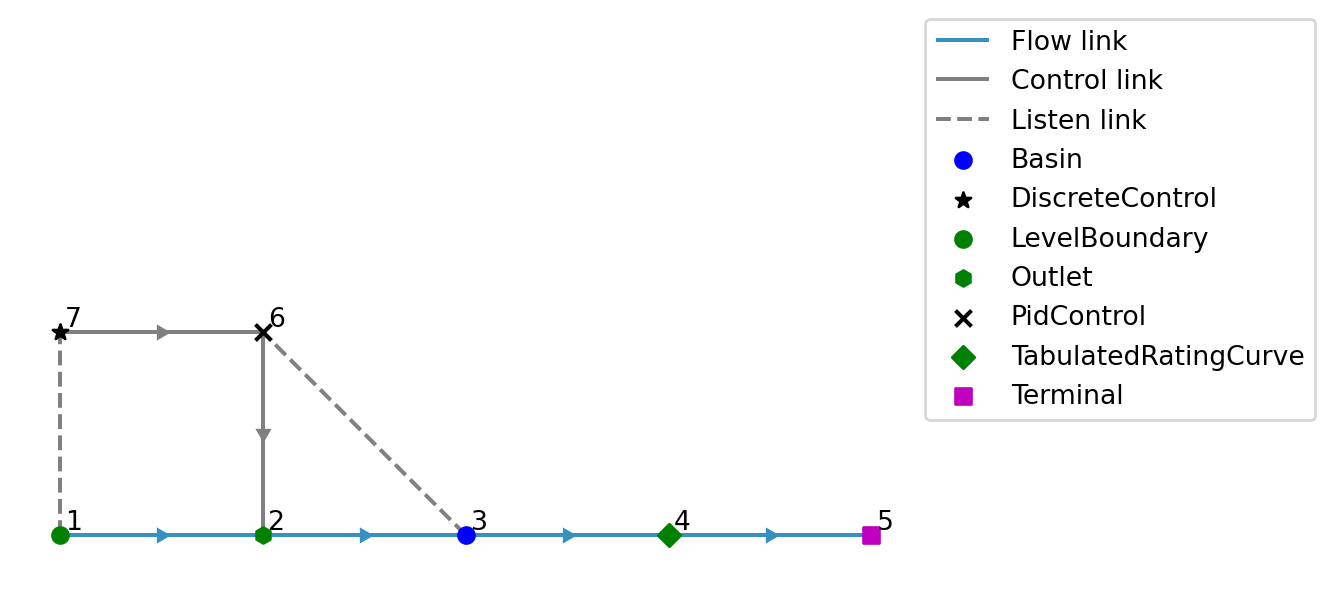
22 drought
Create a small subsection of the LHM Vechtstromen model containing a basin that runs dry (#2189). 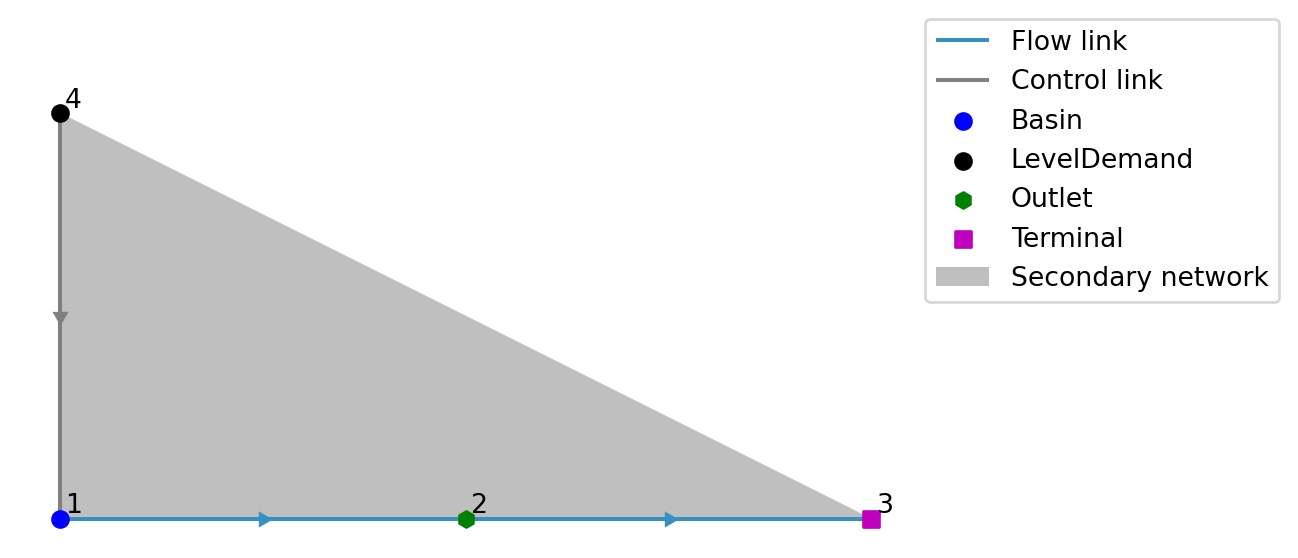
23 fair_distribution
See the behavior of allocation with few restrictions within the graph. 
24 flow_boundary_interpolation
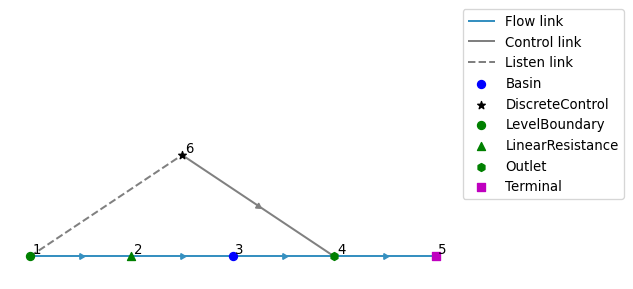
25 flow_boundary_time
Set up a minimal model with time-varying flow boundary. 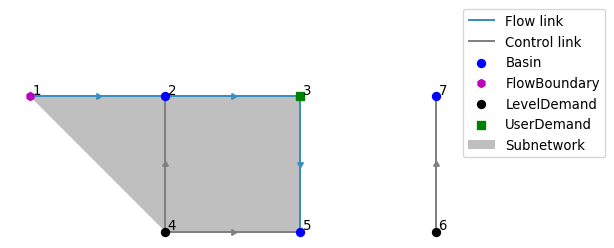
26 flow_condition
Set up a basic model that involves discrete control based on a flow condition. 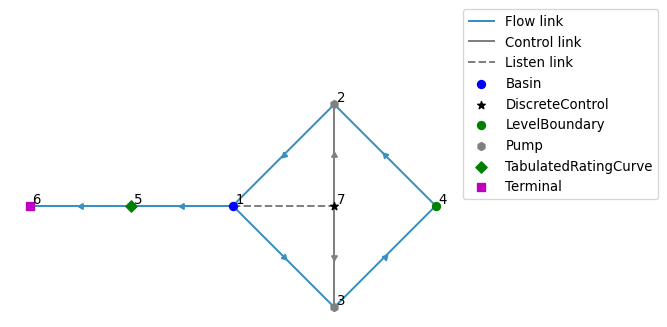
27 flow_demand
Small model with a FlowDemand. 
28 junction_chained
Testmodel with chained junctions. 
29 junction_combined
Testmodel combining confluence and bifurcation junctions. 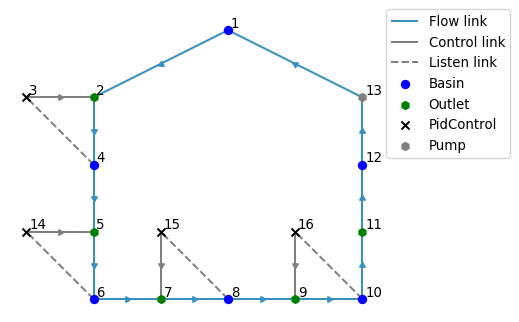
30 leaky_bucket
Bucket model with dynamic forcing with missings at Deltares’ headquarter. 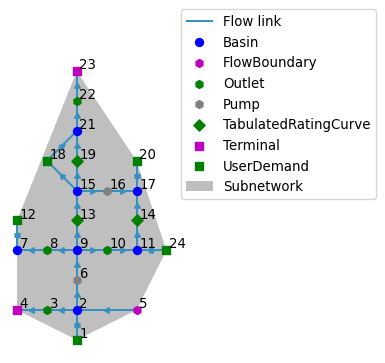
31 level_boundary_condition
Set up a small model with a condition on a level boundary. 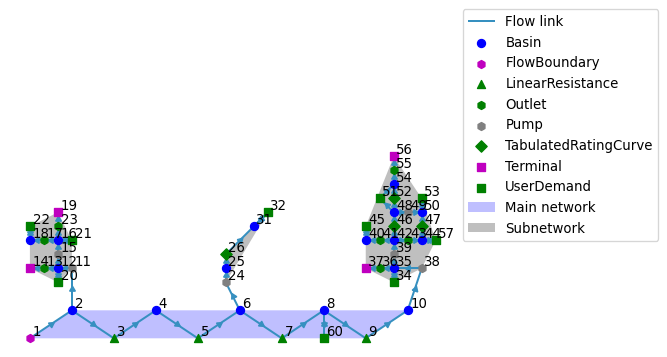
32 level_demand
Small model with LevelDemand nodes. 
33 level_range
Keep the level of a Basin within a range around a setpoint, under the influence of time-varying forcing.
This is done by bringing the level back to the setpoint once the level goes beyond this range.
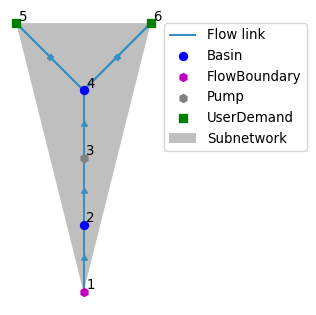
34 linear_resistance_demand
Small model with a FlowDemand for a node with a max flow rate. 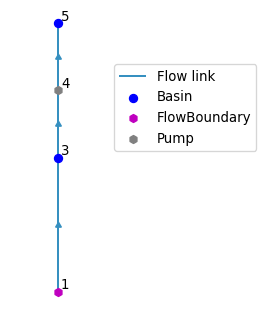
35 linear_resistance
Set up a minimal model which uses a linear_resistance node. 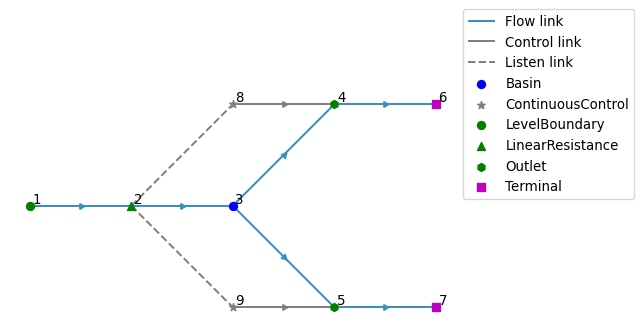
36 local_pidcontrolled_cascade
Demonstrating model for the cascade polder project from our partner. 
37 manning_resistance
Set up a minimal model which uses a manning_resistance node. 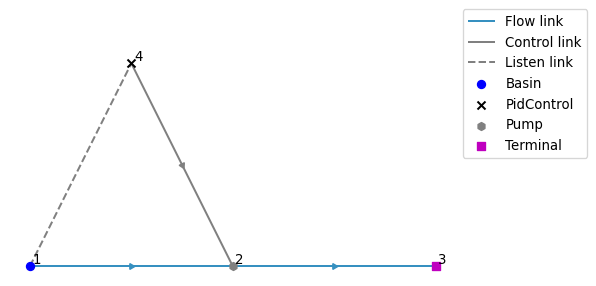
38 medium_primary_secondary_network
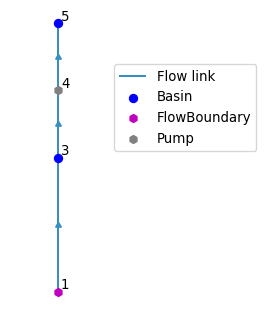
39 medium_primary_secondary_network_verification
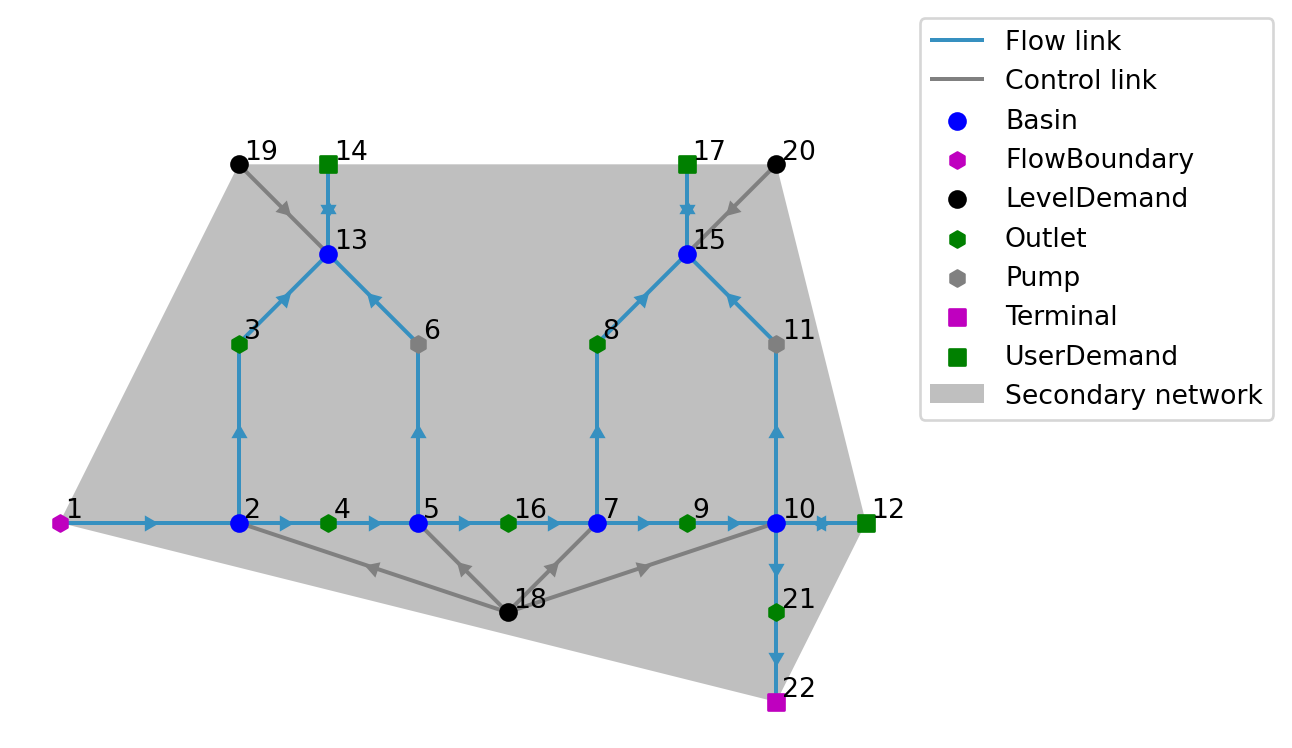
40 minimal_subnetwork
Create a subnetwork that is minimal with non-trivial allocation. 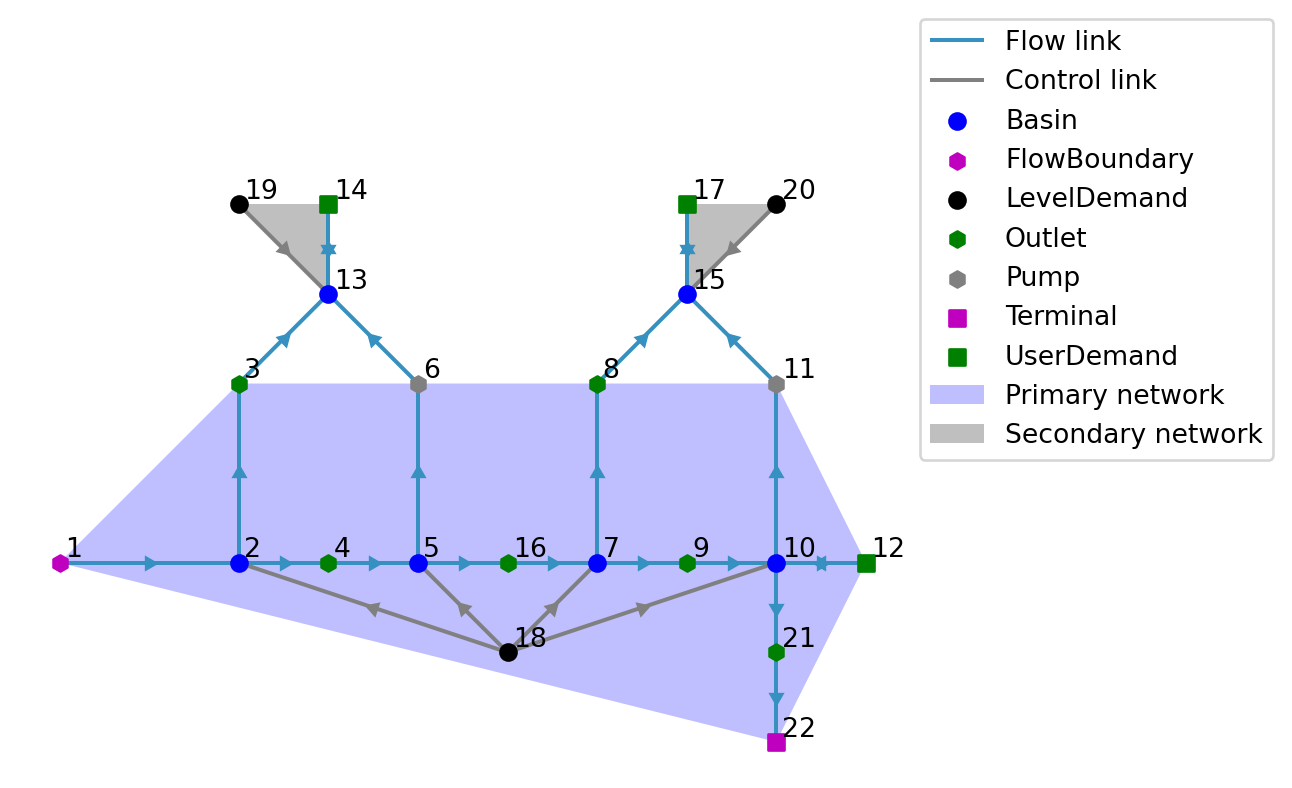
41 misc_nodes
Set up a minimal model using flow_boundary and pump nodes. 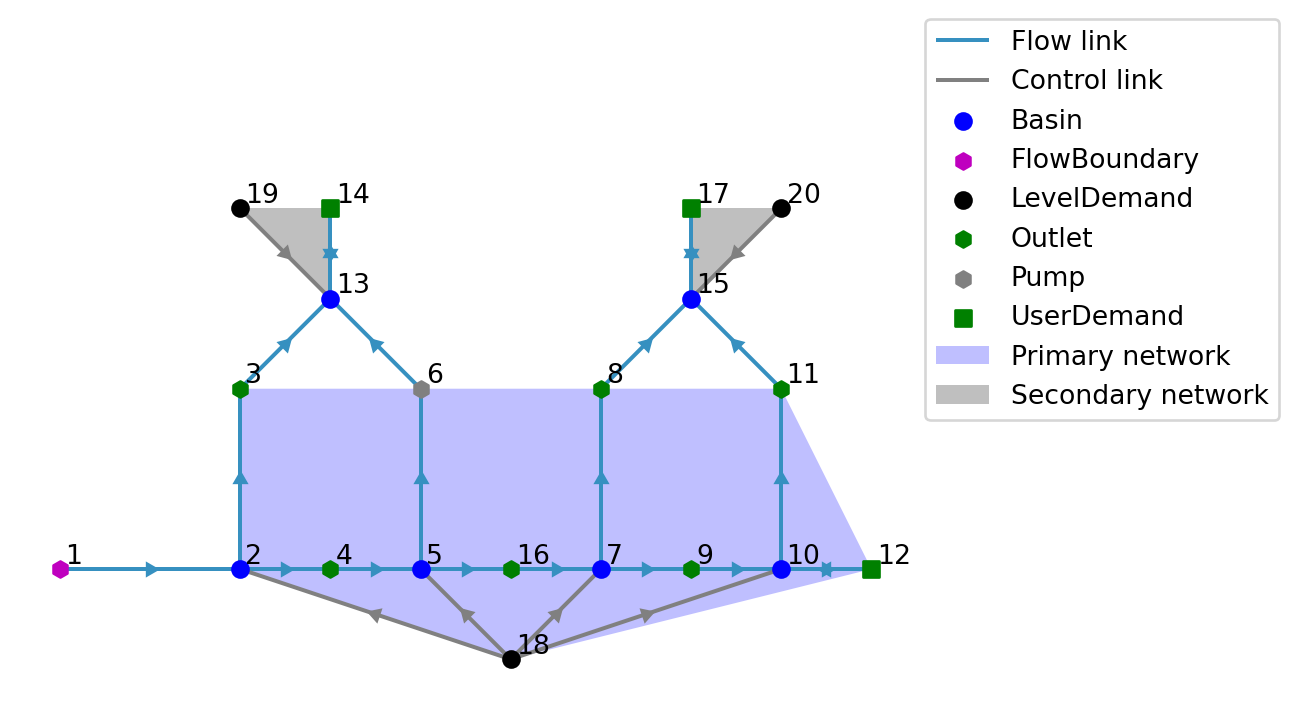
42 multi_level_demand
Create a model that has a level demand with multiple priorities. 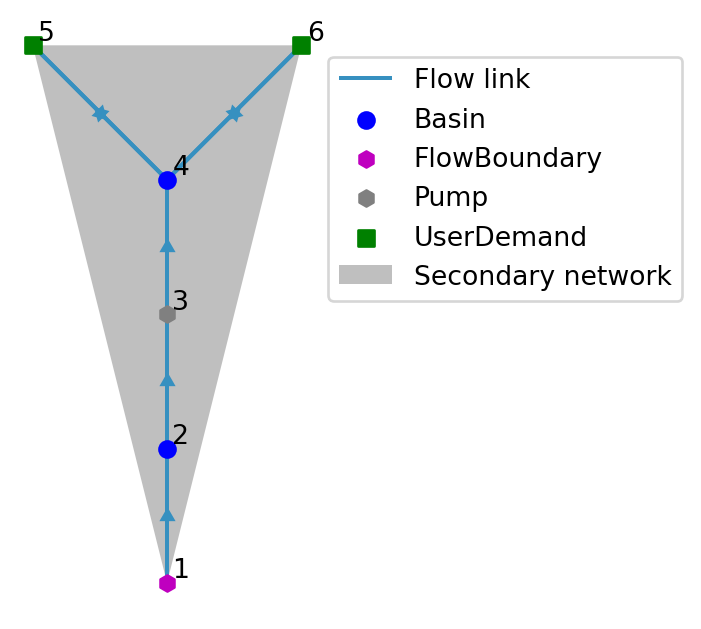
43 multi_priority_flow_demand
Set up a model which contains a FlowDemand node with multiple demand priorities. 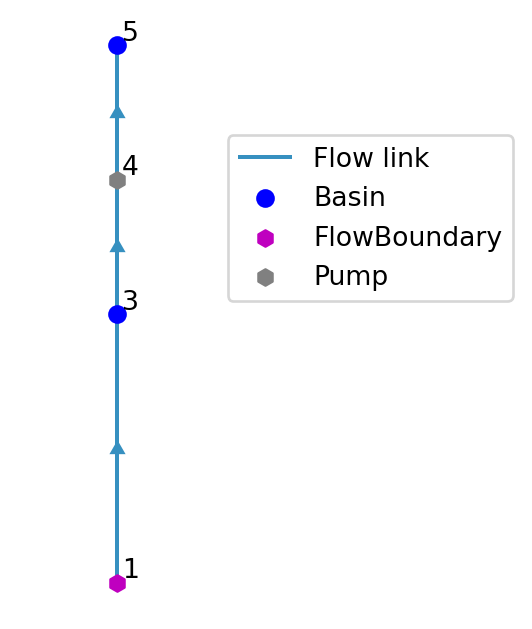
44 multiple_route_priorities
Set up a model to test route prioritization. 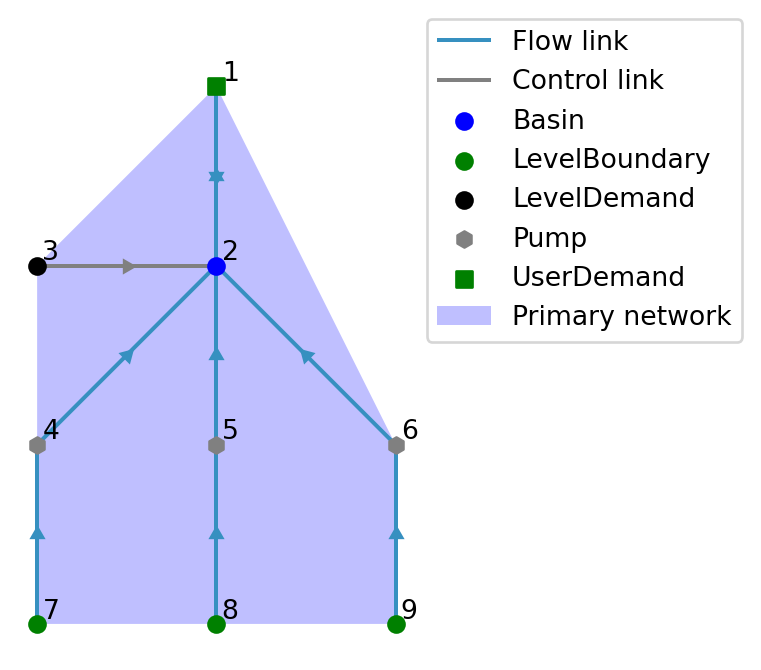
45 outlet_continuous_control
Set up a small model that distributes flow over 2 branches. 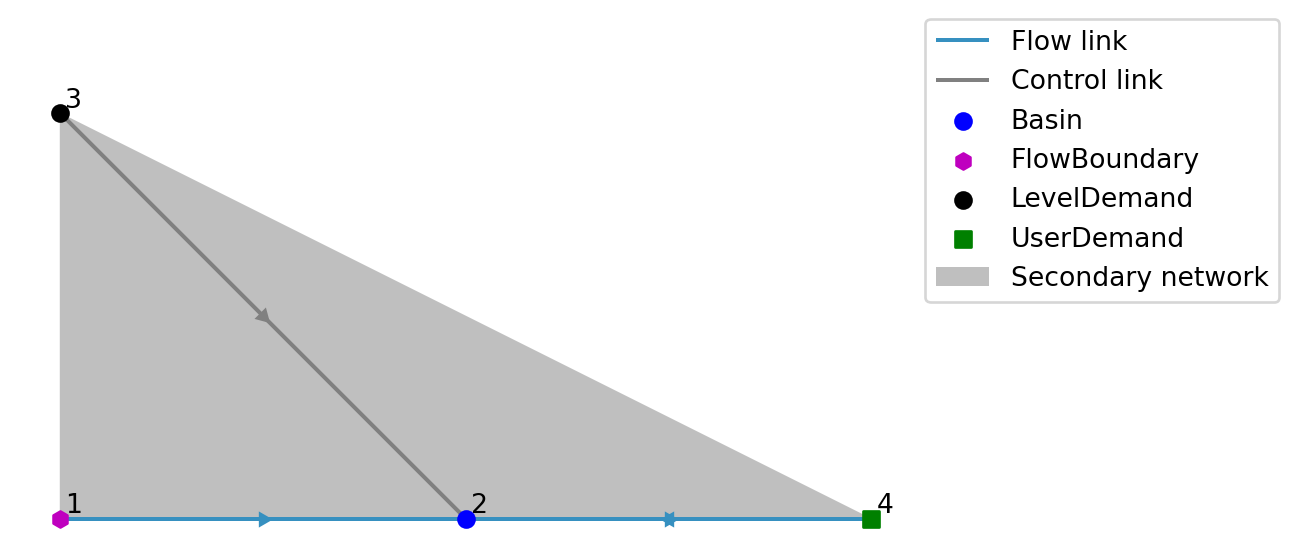
46 outlet
Set up a basic model with an outlet that encounters various physical constraints. 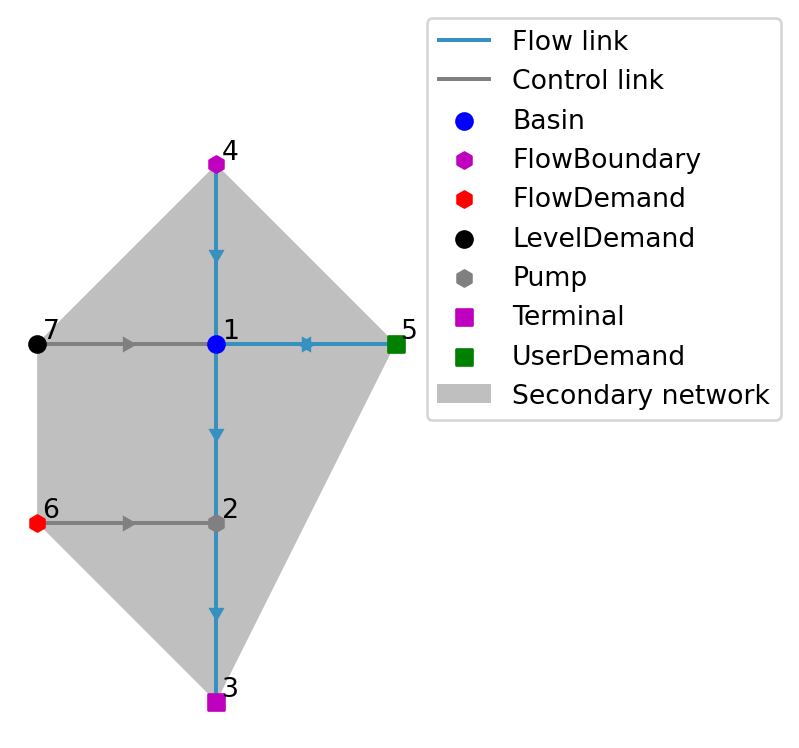
47 pid_control_equation
Set up a model with pid control for an analytical solution test. 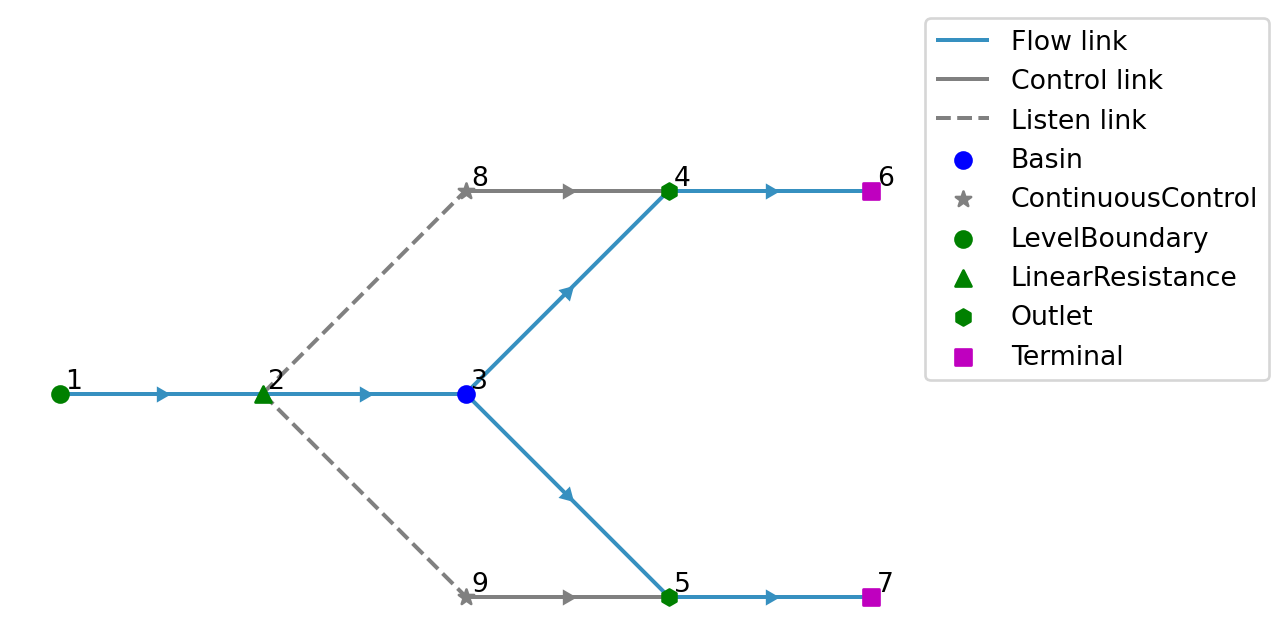
48 pid_control
Set up a basic model with a PID controlled pump controlling a basin with abundant inflow. 
49 polder_management
Set up a model where the water level in the boezem is be higher than in the polder system.
To maintain the target water levels in dry periods in the polder system, a water supply of 2 m³/s is required during two periods of the year: day 90 to 180 and day 270 to 366. Flushing is included as well: 1.5 m³/s during day 90 to 180.
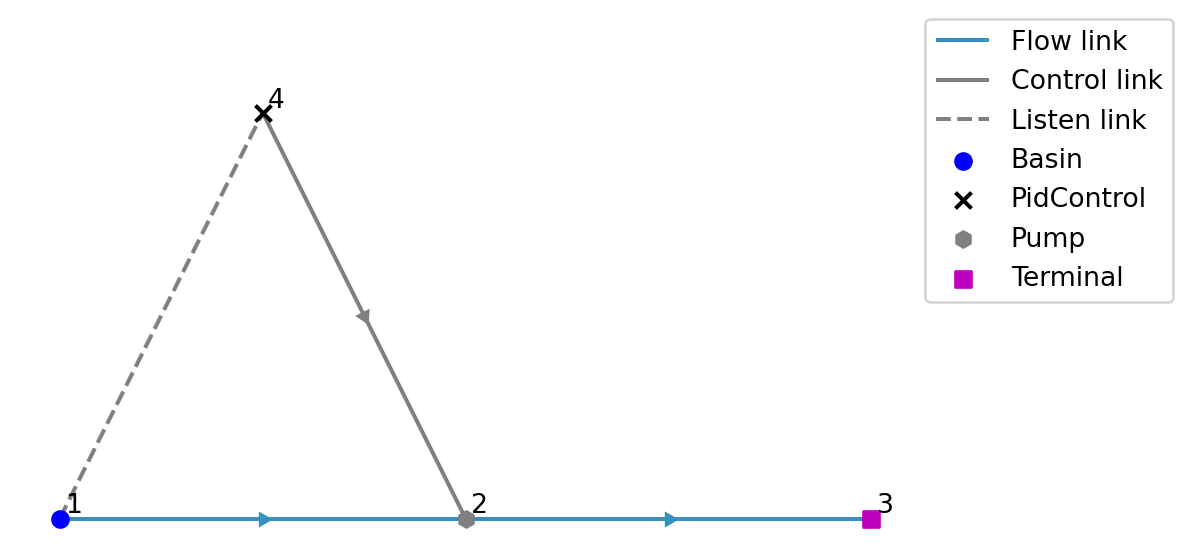
50 pump_discrete_control
Set up a basic model with a Pump controlled based on Basin levels.
The LinearResistance is deactivated when the levels are almost equal.
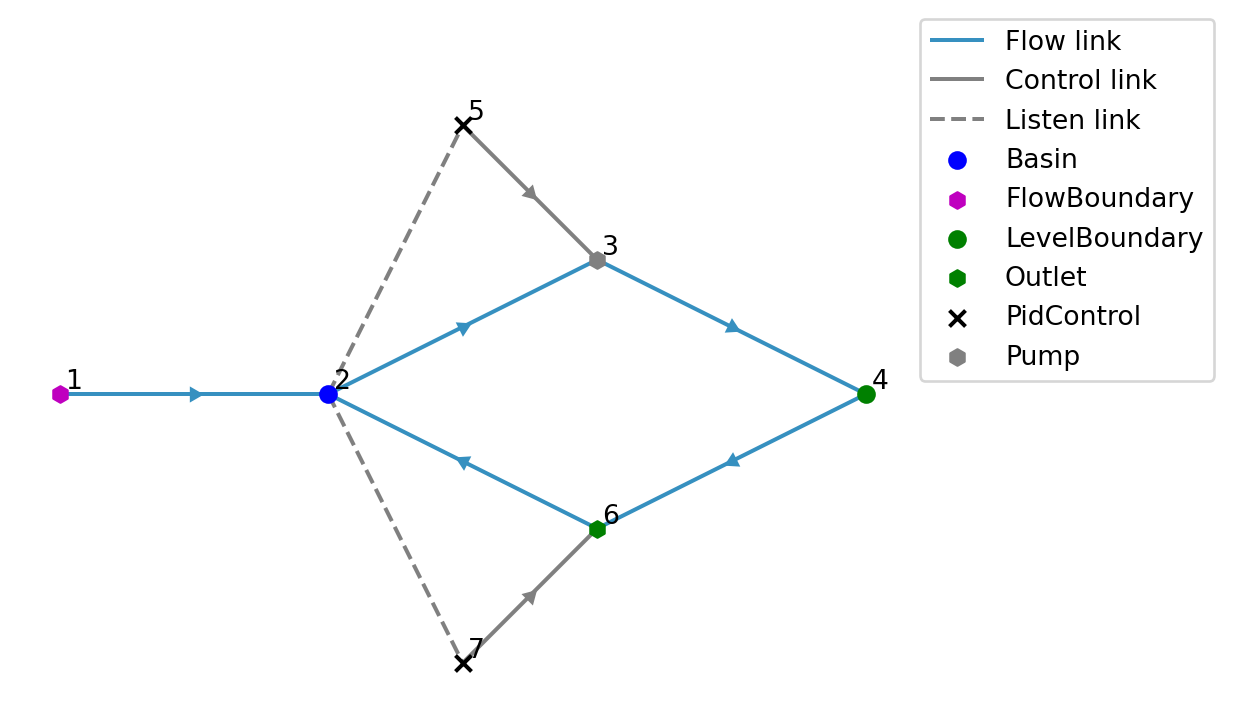
51 rating_curve_between_basins
Set up a minimal model which uses a tabulated_rating_curve node. 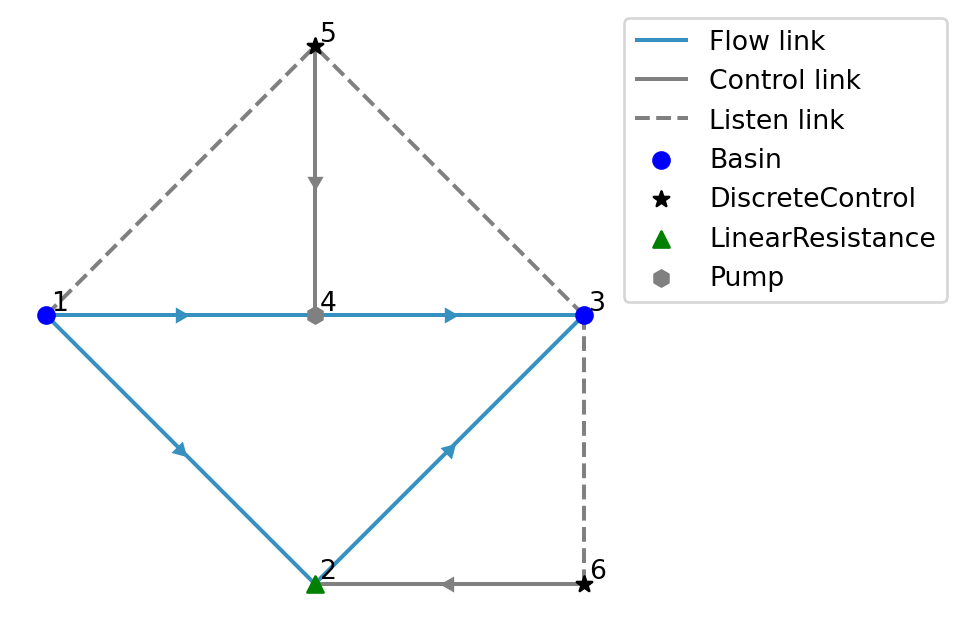
52 rating_curve
Set up a minimal model which uses a tabulated_rating_curve node. 
53 small_primary_secondary_network

54 small_primary_secondary_network_verification
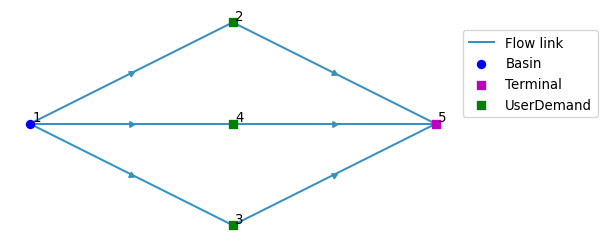
55 storage_condition
Create a model with a discrete control condition based on the storage of a Basin. 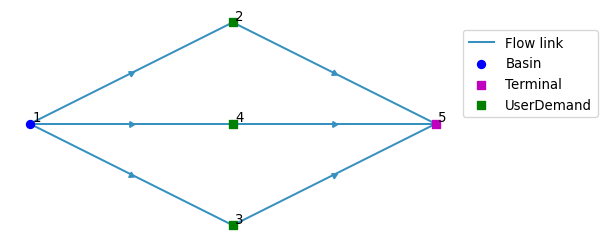
56 switch_allocation_control
Create a model that switches allocation control on and off based on a DiscreteControl node. 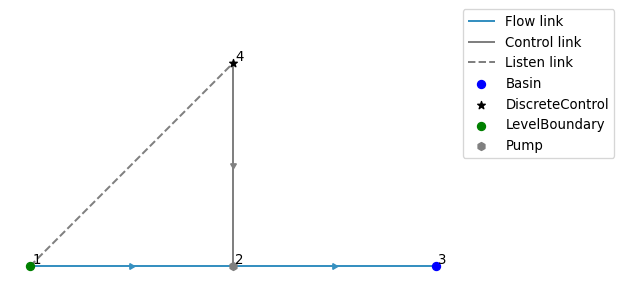
57 tabulated_rating_curve_control
Discrete control on a TabulatedRatingCurve.
The Basin drains over a TabulatedRatingCurve into a Terminal. The Control node will effectively increase the crest level to prevent further drainage at some threshold level.

58 tabulated_rating_curve
Set up a model where the upstream Basin has two TabulatedRatingCurve attached.
They both flow to the same downstream Basin, but one has a static rating curve, and the other one a time-varying rating curve. Only the upstream Basin receives a (constant) precipitation.

59 transient_condition
DiscreteControl based on transient condition. 
60 transient_pump_outlet
Set up a model with time dependent pump and outlet flows. 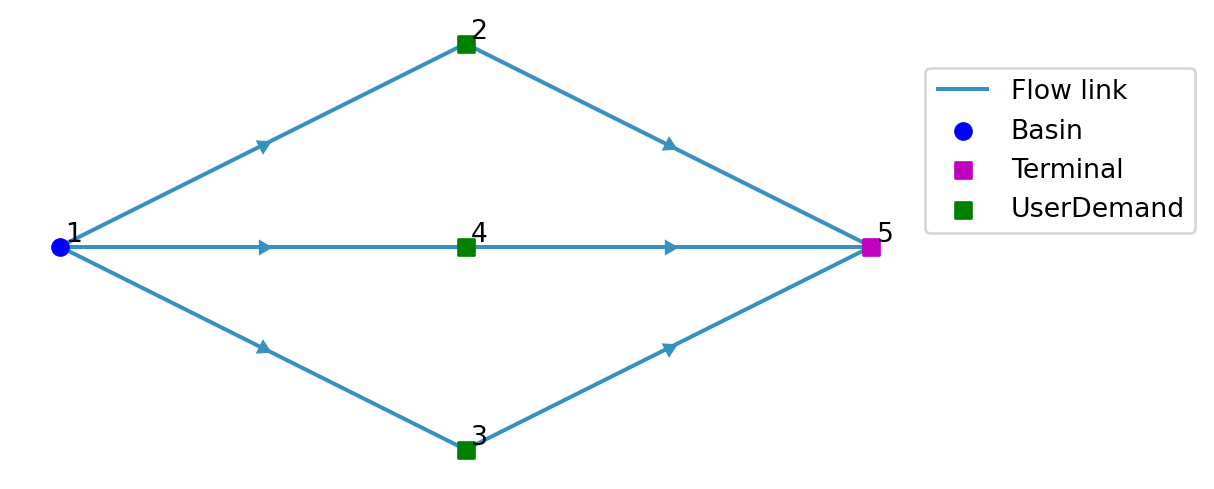
61 trivial
Trivial model with just a basin, tabulated rating curve and terminal node. 
62 two_basin
Create a model of two basins.
The basins are not connected; the model is mostly designed to test in combination with a groundwater model.
The left basin receives water. In case of a coupled run, the water infiltrates in the left basin, and exfiltrates in the right basin. The right basin fills up and discharges over the rating curve.

63 user_demand
Create a UserDemand test model with static and dynamic UserDemand on the same basin. 